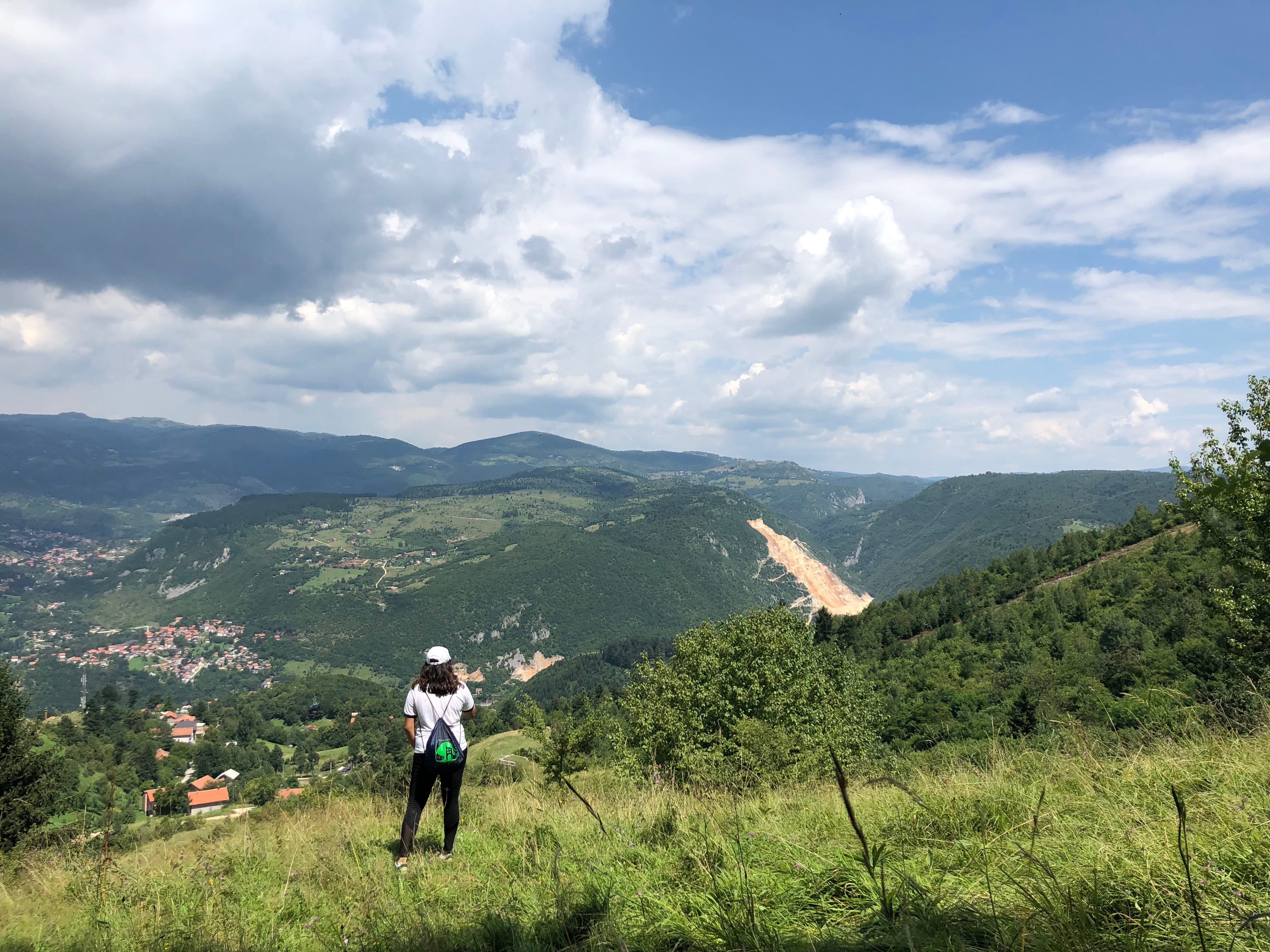Upon arriving to America a few weeks ago, there were several thoughts floating in my mind. Angst for impending school, excitement to eat comfort food, ease in being back in my bed. I had traveled for about a month after my study abroad program to Serbia and Bosnia-Herzegovina, so it had been almost three months since I had been back in the country I call home.
Home is a concept that I very deeply grapple with, both during my travels this summer and while I was living in Serbia and BiH. For some, home is the place where one is born, and for others, home is the place where one is surrounded by those like oneself. Such concepts can be used to describe one’s nationality, the country with which one identifies. For me, a daughter of immigrants, I was brought to America as a two-year-old nestled in my mother’s arms through an incredibly long airplane ride. I learned how to ride a bike and read a book in America— this was the only country I ever really knew.
But, this concept I had of calling a place home only after being acquainted with it for so long changed when I studied in Serbia and BiH. For Serbs who lived in BiH, Serbia might be called home. For Croats who lived in BiH, Croatia may be their home. Even those who have lived in BiH for generations might identify as something different than Bosnian when questioned.
I found this concept of home and nationality very confusing, but after studying the history and culture of the people in the Balkan region for a couple of weeks, I understood how meaningful and impactful one’s ethnic and linguistic identity was to them. For them, it was enough to speak one word differently than the person next to them in order to be considered from different countries.
While ethnic and linguistic identities were core to a Serbian or Bosnian person’s nationality, it was stranger to see how these play out in politics, and how specifically they are used to draw out feelings of nationalism. This leads to the second takeaway I’ve gathered from this trip— that just because one is different does not mean one should fear the other. During the week where we focused on the mental health services in BiH, I learned that not too long ago, people genuinely feared each other’s neighbors, simply because they were not a Serb, Croat or Bosnian. Fear drew out the worst in people here, especially considering the bloody ethnic cleansings that happened in the 1990s. Looking at these atrocities and the perspectives of former political leaders, it may seem that at first, America is very different. However, it was soon clear to me that every country has very similar problems— the crux of the problem is the same, but the manifestation of it may look different. In America, we otherize through differences in race, ethnicity, class and other identities. Americans also hold illogical fears like how undocumented immigrants or refugees are terrorists coming to attack Americans. Americans once feared that pirates from African countries will threaten their security back home. Amongst countless others, I realized that people, leaders and nations often let fear get the best of them, but what the people I met in Belgrade and Sarajevo taught me is how to live life fearlessly.
The people in Serbia and especially BiH have had their fair share of bad days, and despite the traumatic wars in the ‘90s being so present in their collective memory, they persist and support one another. Their communities, though not necessarily tied to the land upon they stand, are resilient, strong-willed, and ample. Having been welcomed to their communities, I felt at home even though I barely knew the people. And this notion, that home is a feeling, was one I carried with me as I traveled around the world and eventually back to America.
“You will never be completely at home again, because part of your heart always will be elsewhere. That is the price you pay for the richness of loving and knowing people in more than one place.” ―
Coming back to America, I was thrilled and exhausted, but also a bit sad because I felt that from traveling and connecting to different places, I started to miss the feelings of being in a certain place or with people I’ve met. I also felt lucky to have access to the things I have, whether it’s running hot water or plentiful vegetarian options. But mostly, I felt fulfilled knowing that I never really leave the places I felt at home because I’ve left pieces of myself there and I’ve taken pieces of the place with me everywhere I go.


